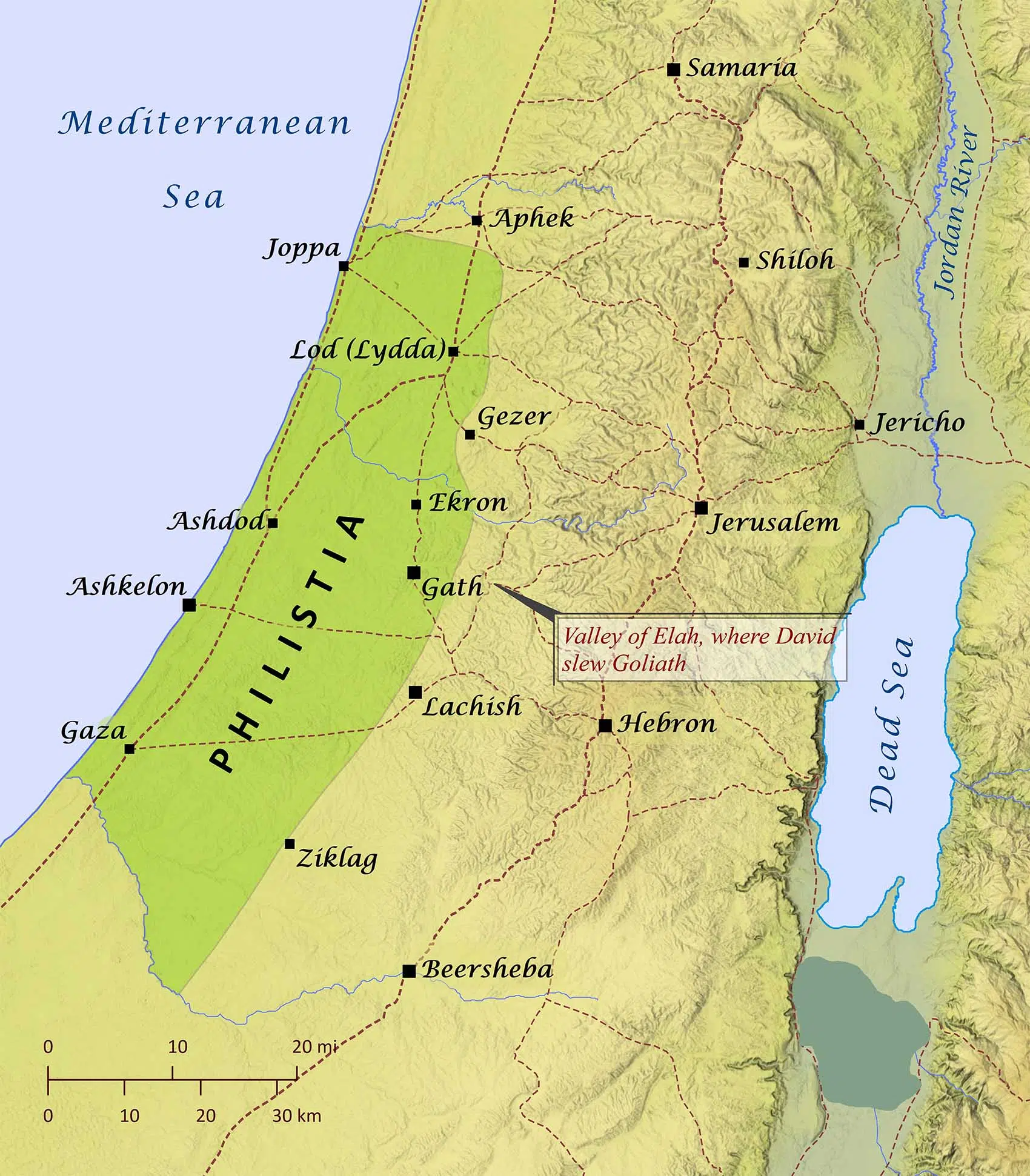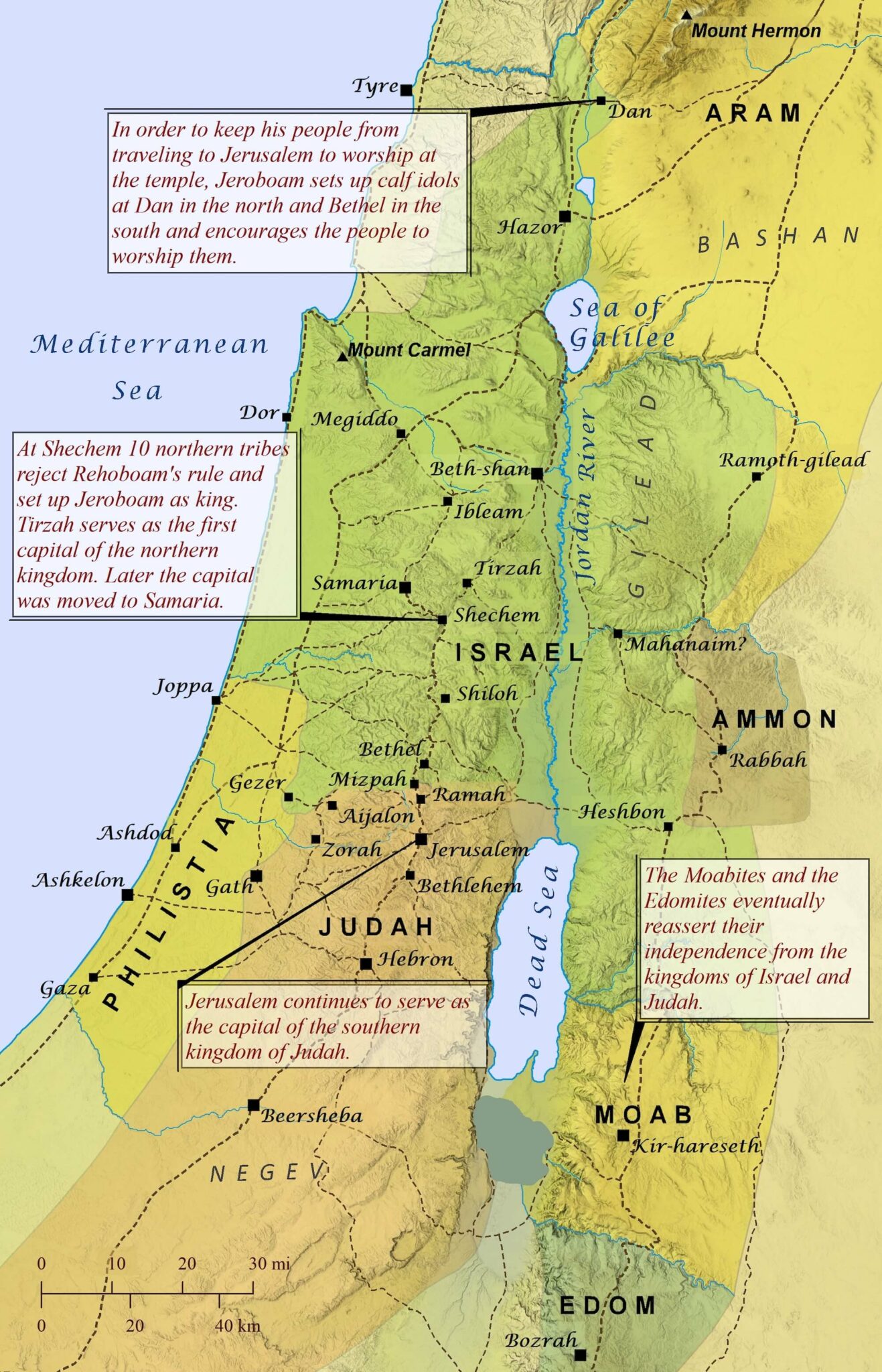Micah, a prophet from Judah, receives the word of the LORD.
Verse 1 serves as the introduction to the book. It states its author, the time it was written, and its destination/audience. As with other minor prophets, the book of Micah begins with the word of the LORD (v. 1), indicating that what followed was a direct revelation from the LORD. The word translated LORD (Hebrew “Yahweh,” meaning “I AM”) is the name of God used in connection to His covenant/treaty with Israel. (See our article on Suzerain-Vassal Treaties)
The one receiving this word was Micah of Moresheth. The name Micah (Hebrew “mîḵāh”) is a shortened version of either the name Micaiah (which means “who is like Yah[weh]”) or Michael (which means “who is like God”). Regardless, it is a question that expects an answer of “no one.” It is a statement of the LORD’s incomparability.
Unlike other prophets who were connected to a family (such as Isaiah, Hosea, and Jonah), Micah was identified using his hometown. Micah’s hometown was Moresheth, a town in the foothills of Judah around 20 miles southwest of Jerusalem. Its full name is Moresheth-gath (1:14) because it was close to the Philistine city of Gath.
The LORD’s word that comprises the book came to Micah in the days of Jotham, Ahaz and Hezekiah, kings of Judah. Jotham ruled Judah from 740 BC to 733 BC, Ahaz ruled from 732 BC to 715 BC, and Hezekiah ruled from 715 BC to 687 BC.
Therefore, Micah must have begun his ministry before the end of Jotham’s reign (733 BC) and probably continued until around 701 BC. Because he spoke of the impending Assyrian invasion of Jerusalem (1:8 – 16), this shows that Micah was a contemporary of the prophet Isaiah.
It is interesting that Micah does not mention the kings of the northern kingdom that reigned during his time of ministry. The reason might be that the northern kingdom was destroyed in 722 BC by the Assyrians, not long after he began prophesying.
The word that Micah received from the LORD was one which he saw concerning Samaria and Jerusalem. The terms Samaria and Jerusalem (the capitals for the northern and southern kingdoms respectively) form a figure of speech that refers to the leaders and the people in the northern (Samaria) and southern (Jerusalem) kingdoms.
The northern kingdom of Israel was sometimes called Samaria, after its capital city. Jerusalem was in the southern kingdom of Judah. Thus, though the book’s audience was primarily those in Judah, it affected everyone in both Israel and Judah.
Biblical Text
The word of the LORD which came to Micah of Moresheth in the days of Jotham, Ahaz and Hezekiah, kings of Judah, which he saw concerning Samaria and Jerusalem.
Check out our other commentaries:
-
Matthew 4:5-7 meaning
For the second temptation, the devil takes Jesus to the top of God’s Temple in Jerusalem and tells Him to jump. The devil argues that...... -
The Passover Seder meaning
Incredibly, the roots of Passover Seders were celebrated as far back as the Exodus generation in obedience to God’s command to keep the Passover (Numbers...... -
The Four Languages of Jesus’s Judea meaning
Jews of Jesus’s day were multilingual. To varying degrees they understood Hebrew, Aramaic, Greek, and Latin....... -
Deuteronomy 28:45-48 meaning
Moses reminds the Israelites that the described curses will come upon them if they fail to obey the LORD. These curses will cause absolute misery...... -
Luke 9:4-5 meaning
Jesus instructs His disciples how to respond when a town receives them favorably and how to respond when a town receives them unfavorably.......




